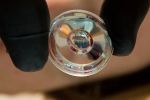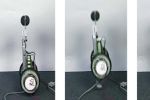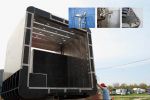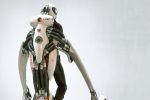The naked mole rat is immune to cancer. At last, scientists have figured out why
Naked mole rats are unique in many ways. For one, they're the only mammals with a hive mind, obeying their queen as if they were ants. Also, they feel no pain, an adaptation still not fully understood. But most importantly for us, they are the only animals that don't get cancer.
And now, a new study by scientists at the University of Rochester, New York, explains at last why these horrific animals, of all of the world's creatures, are immune to cancer.
[
Read Full Story ]








